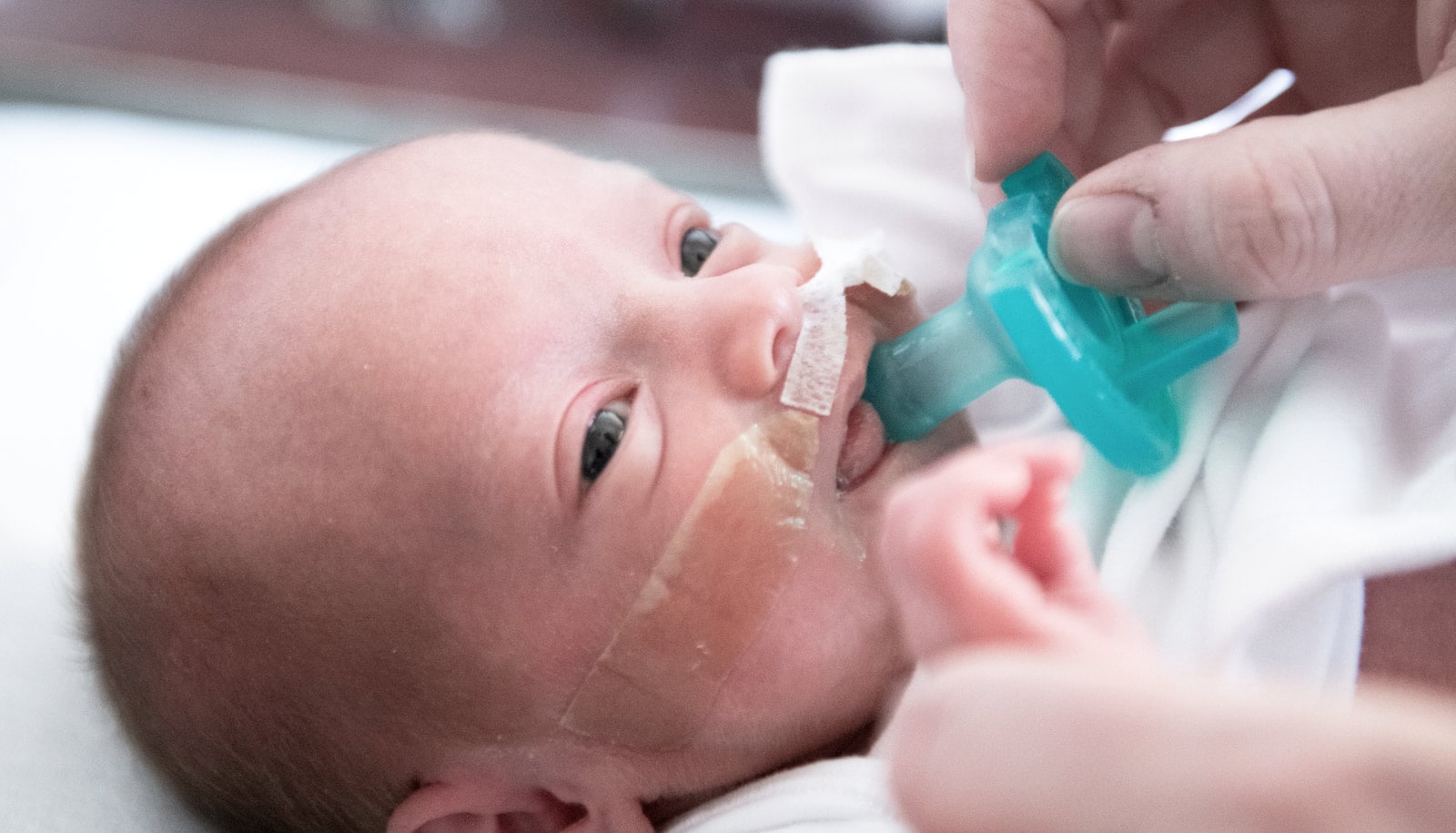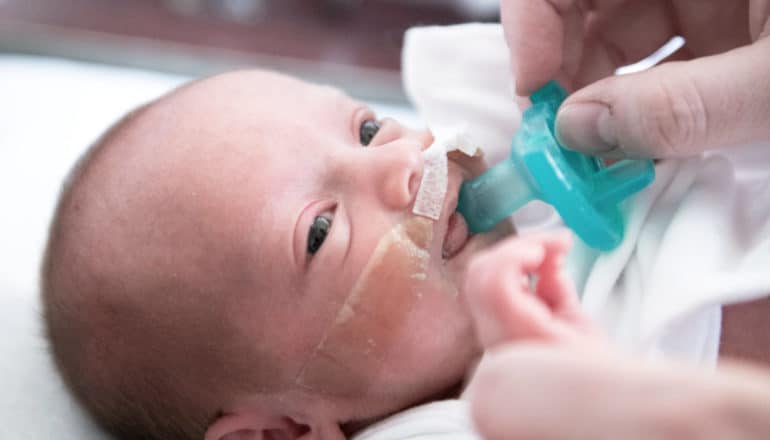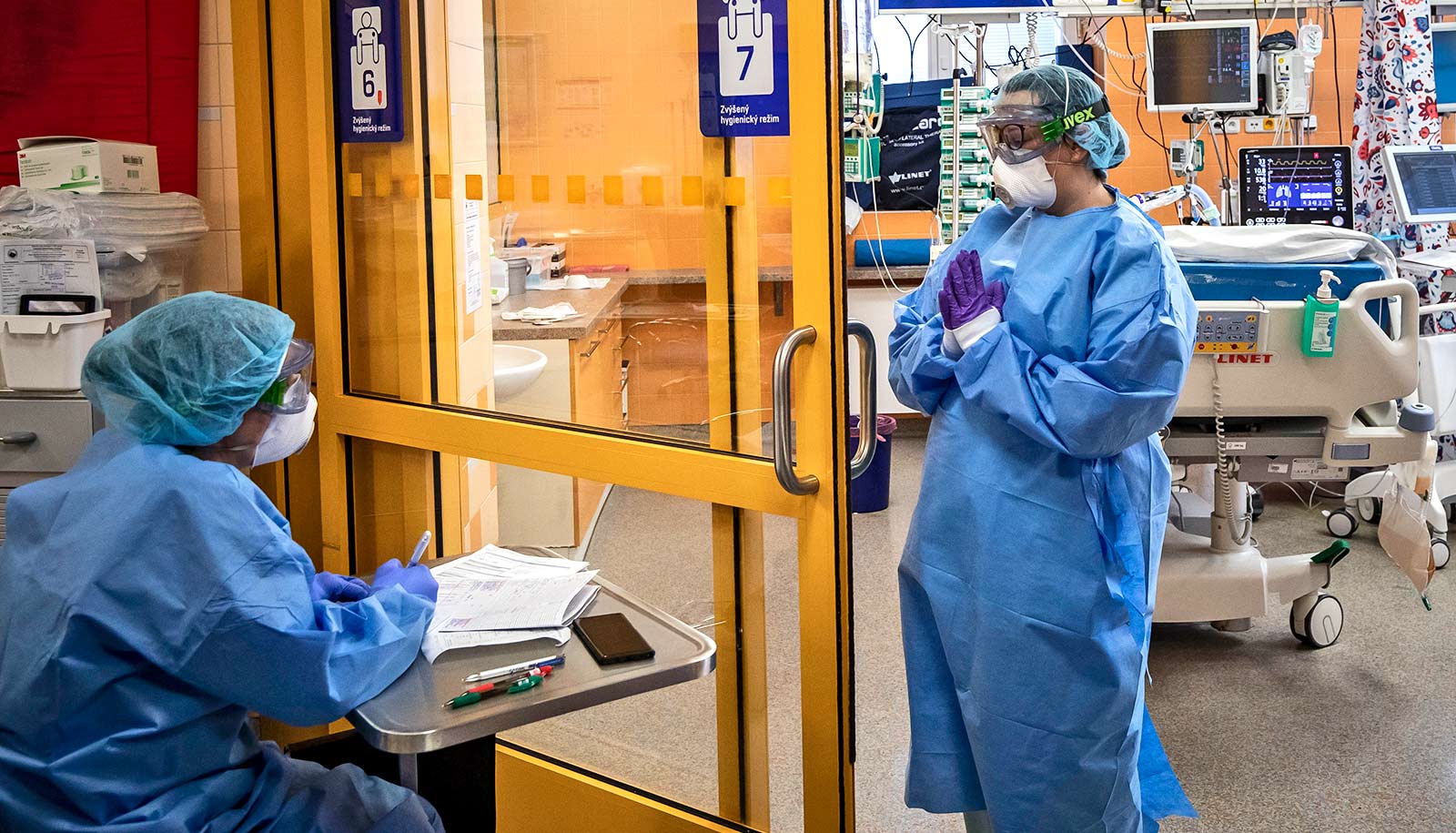
(Credit: Getty Images )
Inhaled drug for preemies cuts pneumonia risk in mice
A drug to protect the lungs of premature babies from pneumonia fell flat before. New research with mice suggests it just needs to go up the nose.

An inhaled drug may offer a way to reduce the risk of life-threatening lung infections like pneumonia, common among premature babies, a study with mice shows.
The underdeveloped lungs and immune systems of premature babies put them at high risk of potentially deadly pneumonia, researchers say, but the drug—an inhaled form of a normal immune protein called GM-CSF—may promote immunity and reduce the risk.
The National Institutes of Health, the National Institute of Arthritis and Musculoskeletal and Skin Diseases, the Hope Center Transgenic Vectors Core, and the Speed Congenics Facility of the Rheumatic Diseases Core Center funded the work, which appears in Science Advances.
Here, senior author S. Celeste Morley, an associate professor of pediatrics, and of pathology and immunology at Washington University in St. Louis, discusses the findings and explains why she thinks the drug may protect premature lungs now, when previous attempts did not:
The post Inhaled drug for preemies cuts pneumonia risk in mice appeared first on Futurity.
Share this article:
This article uses material from the Futurity article, and is licenced under a CC BY-SA 4.0 International License. Images, videos and audio are available under their respective licenses.


